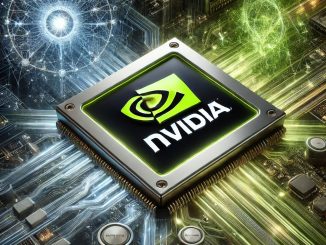
Reuters reports that the U.S. Supreme Court has chosen to sidestep a definitive ruling in a securities fraud lawsuit against Nvidia (NVDA), the leading artificial intelligence chipmaker. The case, which centered on allegations that Nvidia misled investors about its dependency on the volatile cryptocurrency market, was dismissed by the Supreme Court without resolving the underlying legal issues. This decision upholds a lower court’s ruling that allowed the litigation, initiated by the Swedish investment firm E. Ohman J:or Fonder AB in 2018, to proceed.
The report notes that the crux of the lawsuit was whether the plaintiffs met the stringent criteria established by the 1995 Private Securities Litigation Reform Act, intended to filter out baseless securities lawsuits. Nvidia was accused under the 1934 Securities Exchange Act of making deceptive statements in 2017 and 2018 about its revenue streams, particularly those related to cryptocurrency mining. As cryptocurrency prices surged, Nvidia’s chips became highly sought after for cryptomining, a practice involving complex computations to secure digital currencies like bitcoin and ether.
However, the downturn in cryptocurrency profitability by late 2018 led to Nvidia’s revenue falling short of expectations, subsequently impacting its stock price. Shareholders claimed that Nvidia and its CEO, Jensen Huang, obscured the true extent of their business’s reliance on cryptomining, seeking unspecified damages for the devaluation of their shares.
Despite Nvidia’s argument that the plaintiffs lacked sufficient evidence to show intentional or reckless misleading, the 9th U.S. Circuit Court of Appeals disagreed. This court found that the plaintiffs had substantiated claims that Huang made knowingly or recklessly false statements, thus allowing the case to move forward. Nvidia had previously settled with U.S. authorities for $5.5 million in 2022 over related disclosure issues, yet without admitting or denying the allegations.
The Supreme Court’s one-line dismissal order, which offered no explanation, leaves many questions unanswered about the legal thresholds for securities fraud claims. Justices during the November 13 hearing voiced concerns over the case’s factual complexity and whether it presented a clear legal question suitable for their intervention.
This case was part of a duo of high-profile securities fraud disputes the Supreme Court considered in November, with the other involving Meta’s (META) handling of user data breaches. Both cases were dismissed, suggesting a reticence by the Court to delve into the specifics of these technically complex securities issues.
President Joe Biden’s administration had backed the shareholders, indicating a broader governmental interest in maintaining investor protections through private litigation. This dismissal by the Supreme Court might set a precedent or at least fuel further debate on how such cases are adjudicated moving forward, particularly under the stringent requirements of securities law reform.
This nuanced approach by the Supreme Court to not delve into the specifics of the Nvidia case reflects a broader judicial strategy of allowing lower courts to handle cases with highly technical or fact-specific disputes, preserving the integrity of securities law application without overreaching into areas where they might not be best suited to decide.
Price Action: NVDA is trading 1.8% higher at $137.34 at press time.
- Bulenox: Get 45% to 91% OFF ... Use Discount Code: UNO
- Risk Our Money Not Yours | Get 50% to 90% OFF ... Use Discount Code: MMBVBKSM
Disclaimer: This page contains affiliate links. If you choose to make a purchase after clicking a link, we may receive a commission at no additional cost to you. Thank you for your support!



Leave a Reply